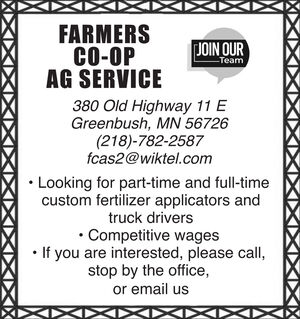Nacho Cheese
April 22, 2023
There was a shortage of dairy products in the 1970s, so then-President Jimmy Carter poured money into the dairy industry to stimulate increased production. Dairy farmers responded and were soon overproducing.
The government would buy any excess dairy and turn it into cheese because it would last a long time. The cheese was supposedly stored underground in caves and abandoned mines in Missouri at a perfect thirty-six degrees.
By 1981 the United States government owned more than sixty million five-pound blocks of cheese. Unfortunately, it was too much cheese to be able to sell. Although cheese lasts a long time, it would eventually deteriorate and become useless.
To keep the cheese from going to waste, the next President, Ronald Reagan, ordered the cheese to be distributed to the public; county governments were tasked with handing out the surplus cheese to lower-income families. This was the origin of a new term: government cheese and the source of many nacho cheese jokes.
At the beginning of the government program, people valued those blocks of cheese as if they were bricks of gold. Then, one day it was rumored a man found two blocks of cheese on the sidewalk in front of the distribution center. He was so thrilled to find them that he picked them up and ran home with one block under each arm.
When the man got home, he told his wife to break out the tortilla chips, "Look at all this nacho cheese, I found." His wife asked how he knew it was nacho cheese. "Because while I was running home, a man yelled, 'That's nacho cheese. That's nacho cheese.'" An onslaught of nacho cheese jokes would follow.
The government cheese was quite tasty, and some of it naturally made its way to the black market. To be honest, that's where I got mine.
An acquaintance of mine and his wife had three children, so the county gave them five blocks of cheese. Subsequently, they were allotted five more blocks of cheese monthly while supplies lasted. "What are you possibly going to do with twenty-five pounds of cheese every month," I asked him.
"At first, we kept one block and sold the rest," he said. "We don't eat five pounds of cheese monthly, so we usually sell them all." This became a common practice, and soon the market was flooded with free government cheese. Eventually, the program faded away. However, even without government cheese, the nacho cheese jokes lived on and are alive and well today.
The word nacho has become everyday slang, meaning, not yours. The term is used beyond blocks of cheese. Theft has become more prevalent in our society, so we hear things like That's nacho car, that's nacho bike, that's nacho house. Unfortunately, the list goes on. Still, we can't blame the cheese because people have been 'borrowing' things since well before government cheese existed.
While the dairy shortage was happening in the 1970s, I began my career in the media industry. My brother Gerard and I had a newspaper route delivering the Capitol Times, in Madison Wisconsin.
Every day after school, we had three bundles of newspapers in front of our house, each holding about fifty to sixty papers. Sometimes there would only be two bundles. I always wondered why someone would steal a bundle of our newspapers.
What could anyone possibly do with fifty copies of the daily news? Maybe it was like getting five blocks of government cheese; they'd keep one and sell the rest on the black market. But I digress.
My brother and I would open the bundles and fold the newspapers in quarters. Then, we'd bring the two edges of the paper to the center and fold it in half again; each was wrapped with a rubber band. The rubber band kept the papers intact so we could throw them to the front porch (or the middle of the front yard, sometimes barely over the street curb) of each subscriber's home.
Next, we would load the folded papers into the oversized baskets on the Clunker, a single-speed, special newspaper route delivery bike. We had a large paper route, so the papers often overfilled the baskets. Finally, the additional papers were stuffed into an off-white canvas newspaper bag with a long carrying strap and a Capitol Times logo.
We frequently debated which of us would have to carry the heavy paper bag over our shoulders, walking the route. The decision often came by winning a rock, paper, scissors, game. If either of us felt the other had cheated, then a wrestling match would decide who carried the bag.
Before the first paper was folded, Gerard and I would each grab an issue, immediately turning to the comics page. I just couldn't wait to see what Snoopy and the Peanuts gang were up to. Next, I had to read Marmaduke, my second favorite cartoon strip. Sometimes we would check the want ads for cool free stuff, then neatly fold the paper so that it did not appear pre-read.
Marmaduke was a very large Great Dane who belonged to the Winslow family. He was always giving the dad, Phil, some sort of grief – much like Dennis the Menace did with his neighbor, Mr. Wilson.
Just the other day, I came across an old Marmaduke panel. Marmaduke was sitting quite comfortably in Phil's blue recliner. Phil stood to the side, holding a cup of coffee and his book in the other, telling the big dog, "That's not what I meant when I said 'sit,' and you know it." Marmaduke stayed in the chair, staring at Phil; I don't think the dog was going to give up his seat.
The cartoon strip made me chuckle, as I could envision our dog, Nova Mae, pulling such a stunt. So many times, Nova took my seat on the couch when I went to get a cup of joe.
Although I chuckled over the cartoon, I literally laughed out loud as I looked across the dining room table into the living room where Nova Mae was sitting in Melissa's chair; a chair Nova has been told many times is off limits. Even when told to leave the chair, Nova will just sit and look at you.
I quickly took a photo of Nova to show Melissa the similarity to the cartoon. Then, I returned to my seat in the dining room, where our cat Edgar Allan had made himself comfortable. "Move it, buster," I told the cat.
But the comfy feline just looked at me as if to say, "It's nacho chair."
Melissa's chair has a blue plaid throw, very close to the color of Phil Winslow's recliner. It was like the cartoon strip had come to life, playing out in my living room. I wonder how many times I've seen this exact scenario:
Melissa walked into the living room with her cup of tea in one hand and her book in the other, only to find her chair occupied by a dog. "Get out of my chair," she'd tell Nova. But Nova continued to sit in the chair, staring at Melissa. I don't think Nova was going to give up her seat.
My wife again ordered the dog out of her chair. I think I heard Nova say, "It's nacho chair."
Eventually, Melissa won the contest, reclaiming her chair. However, I don't know if they settled the matter by playing rock, paper, scissors, or if a wrestling match ensued. Melissa could have easily tricked the canine by taunting Nova with a piece of cheese – but I suppose Nova would only fall for this trick if it was nacho cheese. I wonder if Phil ever got his chair back?









Reader Comments(0)